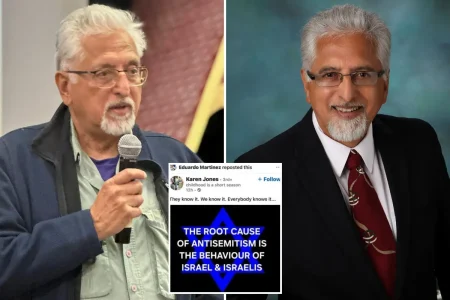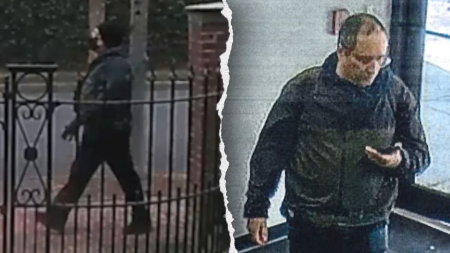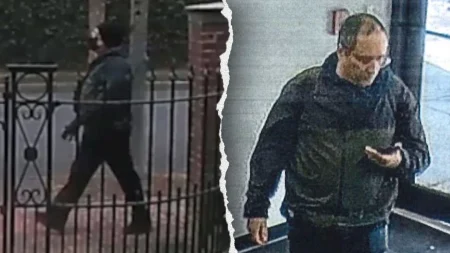The morning of September 11, 2001, dawned like any other Tuesday in New York City. The sun rose over a bustling metropolis, unaware of the horror that was about to unfold. For N.J. Burkett, a relatively new ABC News correspondent still undergoing training, it was supposed to be a routine day. Little did he know that within hours, he would be thrust into the heart of an event that would forever reshape the world and indelibly mark his own career. The carefully constructed schedule of newsroom meetings and planned segments disintegrated as the first plane struck the North Tower of the World Trade Center. The initial confusion quickly gave way to the chilling realization that this was no accident. Burkett, along with the rest of the world, watched in disbelief as the second plane slammed into the South Tower, confirming the terrifying reality of a coordinated attack. What followed was a whirlwind of activity as news organizations scrambled to cover the unfolding tragedy. Burkett, despite his limited on-air experience, was immediately dispatched to Ground Zero, tasked with providing live coverage of an event of unimaginable scale and consequence. He found himself at the epicenter of a national crisis, tasked with chronicling a defining moment in history.
Arriving at the scene, Burkett was confronted with a landscape of chaos and devastation. The air was thick with dust and smoke, the ground littered with debris. The towering structures of the World Trade Center, once symbols of American economic might, were now engulfed in flames. The sounds of sirens, screams, and collapsing concrete created a cacophony that assaulted the senses. Amidst this horrific scene, Burkett had to maintain his composure and deliver clear, concise reports to a nation desperate for information. He began broadcasting live, describing the unfolding events with a mixture of professionalism and raw emotion. He interviewed witnesses, firefighters, and police officers, capturing their stories of courage and despair. He relayed the chilling details of the collapsing towers, the desperate search for survivors, and the growing sense of fear and uncertainty that gripped the city. His reports, delivered under immense pressure and in the face of unimaginable horror, became a vital lifeline connecting the world to the ground truth of the unfolding tragedy.
The sheer scale and complexity of the event posed unprecedented challenges for Burkett. With communication lines down and information scarce, he was forced to rely on his instincts and journalistic training. He had to sift through the chaos and confusion, separate fact from rumor, and deliver accurate and reliable information to a global audience. The emotional toll was equally immense. Witnessing the devastation firsthand, hearing the cries for help, and seeing the faces of those lost and grieving, took a profound emotional toll on Burkett and his colleagues. Yet, amidst the heartbreak and horror, he also witnessed incredible acts of bravery and resilience. He saw firefighters rushing into burning buildings, ordinary citizens helping one another escape, and a nation united in grief and resolve. These moments of humanity and heroism provided a glimmer of hope amidst the darkness and despair.
Burkett’s on-the-ground reporting captured the raw emotion and unfolding tragedy with a visceral immediacy. His broadcasts weren’t just reports; they were a shared experience of grief, fear, and disbelief. His voice, often choked with emotion, conveyed the enormity of the event and resonated deeply with viewers across the nation and around the world. He became a conduit for the shared national grief, giving voice to the collective trauma that gripped the nation. His reports weren’t polished narratives crafted in the comfort of a news studio; they were raw, unfiltered accounts delivered from the heart of the disaster. His words painted a vivid picture of the devastation, the heroism, and the human cost of the attacks. He became, in a sense, a representative of the collective consciousness, experiencing the tragedy alongside the nation and conveying that experience through his words.
As the dust settled and the immediate crisis subsided, Burkett’s coverage continued to resonate. His reports became a historical record of the day, capturing the raw emotion and unfolding events with an unflinching eye. His work stood as a testament to the power of journalism to bear witness to history, to inform, and to connect people during times of crisis. His reporting went beyond simply conveying facts; it captured the human element of the tragedy, the stories of loss, resilience, and hope that emerged from the ashes of destruction. His broadcasts became part of the collective memory of 9/11, a stark reminder of the vulnerability of human life and the enduring power of the human spirit. They served as a crucial resource for historians, researchers, and future generations seeking to understand the events of that fateful day.
Burkett’s experience on 9/11 transformed him both personally and professionally. He went from a trainee correspondent to a seasoned journalist, forever marked by the events he witnessed. The tragedy underscored the importance of responsible reporting, the need to provide accurate and timely information, and the power of journalism to connect people during times of crisis. He continued his career with ABC News, covering major events both domestic and international, but the memory of 9/11 remained a constant presence, shaping his approach to journalism and his understanding of the world. The experience also instilled in him a deep sense of empathy and a commitment to telling the stories of ordinary people caught in extraordinary circumstances. His 9/11 coverage became a defining moment in his career, a testament to his courage, professionalism, and dedication to the principles of journalistic integrity.










